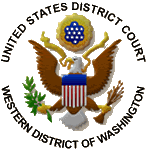Loading AI tools
Doe v. 2TheMart: Anonymity upheld online From Wikipedia, the free encyclopedia
Doe v. 2themart.com Inc., 140 F. Supp. 2d 1088 (2001), was a federal case decided by United States District Court for the Western District of Washington, on the issue of an individual's First Amendment right to speak anonymously on the Internet and a private party's right to disclose the identity of the anonymous Internet user by enforcing a civil subpoena. The court held that 2TheMart.com (TMRT) failed to show that the identities of these anonymous Internet users were directly and materially relevant to the core defense in the litigation, and thus the subpoena should not be issued. Therefore, Doe's motion to quash the subpoena was granted.
This article needs additional citations for verification. (June 2011) |
| Doe v. 2themart.com Inc. | |
|---|---|
 | |
| Court | United States District Court for the Western District of Washington |
| Decided | April 26, 2001 |
| Citation | 140 F. Supp. 2d 1088 |
| Holding | |
| The court held that 2TheMart.com (TMRT) failed to show that the identities of these anonymous Internet users were directly and materially relevant to the core defense in the litigation, and thus the subpoena should not be issued. Therefore, Doe's motion to quash the subpoena was granted. | |
| Court membership | |
| Judge sitting | Thomas S. Zilly |
| Keywords | |
| Anonymous post, Doe subpoena | |
In a previous case, the shareholders of 2TheMart.com (TMRT) brought a class action against the company, alleging fraud on the market. To establish a defense that the defendant did not cause any injury to the plaintiff, TMRT issued a subpoena to the tech stock discussion website Silicon Investor and its then owner InfoSpace, Inc. (InfoSpace) on which TMRT has an Internet bulletin board, seeking to obtain the identities of twenty-three users who have posted on the TMRT bulletin board unfavorable messages about the company. InfoSpace Informed these users of receipt of the subpoena. One of the users moved to quash the subpoena under a pseudonym John Doe (Doe), alleging that enforcement of the subpoena would violate his or her First Amendment right to speak anonymously. This motion to quash is the subject of the present case.
This motion to quash raised an important issue on the First Amendment right of an Internet user, that is, whether and on what basis can a private party seek to discover the identity of anonymous Internet users who might be third-party witnesses in the litigation through the enforcement of a civil subpoena?
Doe's motion to quash the subpoena was granted. In other words, the court supported Doe's contention that TMRT had no right to discover the identity of the anonymous users on the InfoSpace website.
Although the court did not find suitable federal court authority on the issue of a third-party seeking through a civil subpoena to reveal the identities of anonymous Internet users, the court maintained that the anonymity of Internet speech is protected by the First Amendment. Therefore, when requesting to identify anonymous users, the litigants are required to show that the need for the users' identification information outweighs the users' First Amendment rights.
In the case that the anonymous Internet user whose identity is being subpoenaed is also the defendant of the underlying litigation, the plaintiff is required to show that they are bringing the lawsuit in good faith, as well as the compelling need for the discovery of the identifying information. See also the previous cases Columbia Ins. Co. v. Seescandy.com 185 F.R.D. 573 and In re Subpoena Duces Tecum to America Online, Inc. 2000 WL 1210372(Va. Cir. Ct. 2000)
Since in this case the anonymous user is not the defendant, but is instead a non-party witness in the underlying litigation, the court chose to set a higher standard for disclosing the identity of the anonymous non-party. In particular, the court considered the following four factors to decide whether the subpoena should be issued:
After analyzing and weighing these four factors, the court held that TMRT failed to show that the identities of these anonymous Internet users were directly and materially relevant to the core defense in the litigation, and thus the subpoena should not be issued. Therefore, Doe's motion to quash the subpoena was granted.
A different line of cases addresses the issue whether a civil subpoena can be issued to discover the identities of Internet anonymous users so that the internet users can be sued for their speech. Several states courts have set forth different tests, each attempting to balance the First Amendment right of the users to speak anonymously and the plaintiff's right to remedy wrongful behavior on the Internet.
Seamless Wikipedia browsing. On steroids.
Every time you click a link to Wikipedia, Wiktionary or Wikiquote in your browser's search results, it will show the modern Wikiwand interface.
Wikiwand extension is a five stars, simple, with minimum permission required to keep your browsing private, safe and transparent.